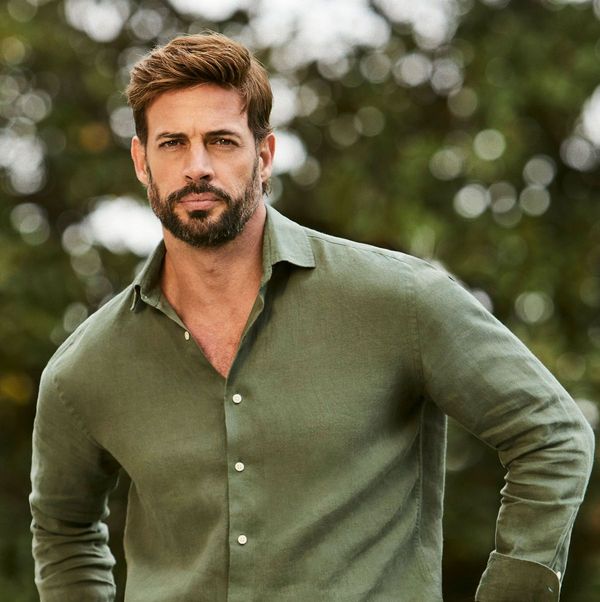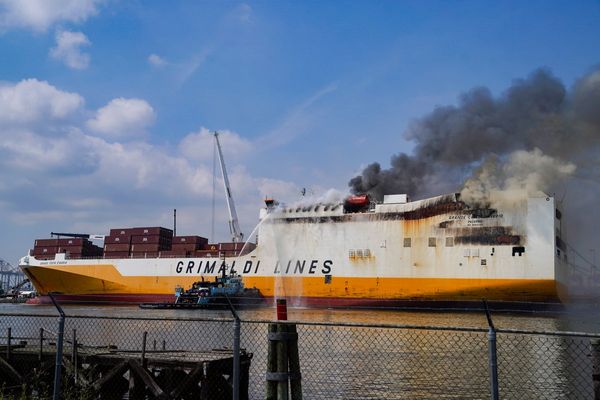
The Ukrainian anthem has been playing from the medieval tower of Kraków’s most important church, St Mary’s Basilica. St Mary’s Trumpet Call, a traditional bugle call played every hour, gave way to this sign of extraordinary times.
In Warsaw’s centre, by contrast, the now famous response to the Russian navy of soldiers defending an island in Ukraine is displayed in Cyrillic script on a huge illuminated sign: “Go fuck yourself.”
These are telling symbols of a profound mood change in Poland. Although the war is being waged in Ukraine, from the very beginning its echo has resonated across central and eastern Europe.
The refugee exodus from Ukraine to neighbouring countries since 24 February has now reached 1.7 million, according to the UN; two-thirds of those fleeing have arrived in Poland. Russia’s bombardment of so many urban areas in Ukraine means the human tide is rising dramatically.
To the astonishment of many, Poland has reacted with open arms. The authorities unlocked the frontier and are admitting anyone in need, virtually irrespective of documents. “Don’t show me your passport,” a conductor at one railway station allegedly said. “I look into the eyes, not at documents.” Aid groups, NGOs, officials and Polish people seem to be working together for the same humanitarian aim. As the Ukrainian writer Anastasia Lapatina wrote in the Guardian , she had expected to find “a human catastrophe” when she made it across the Polish border. Instead, along with hundreds of thousands of others, she met “the best of humanity”.
How is it possible that a country previously perceived as the most hostile in Europe to incoming refugees is suddenly the most generous?
The sense of disbelief is certainly justified. Since the Syrian refugee crisis of 2015, Poland, governed by the populist Law and Justice party, has opposed plans to share asylum seekers among the member states according to countries’ size. In 2021, Poland deployed armed police and military using force to push back a few thousand people, many of them women and children, but mostly from Afghanistan and Syria. Their arrival at the border with Belarus had been orchestrated by Putin’s ally Alexander Lukashenko.
Yet now Poles almost unanimously say they see in Ukrainians “people like us”.
It is too easy to misinterpret this as being motivated entirely by sympathy for those who share the same ethnicity, culture or religion. But this unprompted outpouring of compassion and empathy is primarily moulded by geography and shared history.
Polish people are reacting to Russia’s assault on Ukraine as if they themselves were at war. These neighbouring countries of the region share a traumatic past and an anxious sense of themselves: their sovereignty feels fragile and nervously held.
The faces of fleeing Ukrainians remind Poles of this intertwined past, but also warn of an ominous shared future. The past because central and eastern European states have historically re-established their independence only to lose it moments later.
The future because Kyiv, Tallinn, Riga, Vilnius, and Warsaw alike are convinced there is such a thing as a new domino effect. “Sooner or later we will be next,” people say. It is a subcutaneous fear of the eventual return of dormant Russian imperialism. With horror we watch as Vladimir Putin again seeks to freeze the region in the past, reimposing the logic of spheres of influence, exactly as in the 18th, 19th and 20th centuries.
By helping Ukraine’s fleeing population, Poles are fighting their own feelings of dread, hoping that if the west can save Ukrainian sovereignty this time, they too can escape the trap of history.
Nervous sovereignty may sound to many like alarmism, but these fears are legitmatedespite Nato and EU membership, as Kaja Kallas, the Estonian prime minister, reminds us often. The fact that in 2022, the Ukrainians are left to fight alone tends to confirm this regional disquiet. To be abandoned by western allies is another regionally shared experience.
No wonder that in supermarkets across Poland loudspeakers call on shoppers to drop off food and medicines in special baskets. People rush to the border in private cars and buses to collect Ukrainian refugees and bring them to safety. Rooms in private homes are thrown open to those in need. The Poles call it a “carnival of solidarity”, echoing the grassroots mobilisation that led to the anti-communist trade union in 1980. Many people involved in the aid effort today hope that this new carnival is as transformational politically as the movement was 40 years ago.
The German newspaper Sueddeutsche Zeitung called the Polish response a new Willkommenskultur (welcoming culture), a reprise of what happened in Germany during at the start of the 2015 Syrian refugee crisis.
In Berlin, Ukrainian flags fly from many buildings too, and Germans willingly offer their homes and cars, but one woman in the German capital told us she thought that this time it was the turn of Poles to show solidarity. And indeed it is. This is how democratic societies build bonds against the destruction of war.
In 1947 the US president Harry Truman outlined a new foreign policy doctrine aimed at containing communism, under which any country whose sovereignty came under threat could expect US help. It didn’t quite work out in practice. But a new Truman doctrine for liberal democracies is perhaps needed now, one that is relevant to our times and our world – one that requires new ties of solidarity and compassion to neutralise the aggression of our contemporary dictators.
Meanwhile it must be hoped that Poland’s spontaneous reaction marks a humanitarian and political turning point, so that when other war refugees come to our border the door stays open for them too.
Karolina Wigura is a historian of ideas, board member of the Kultura Liberalna Foundation in Warsaw and a fellow at the Robert Bosch Academy in Berlin
Jarosław Kuisz is a political analyst and essayist, editor-in-chief of the Polish weekly Kultura Liberalna and a policy fellow at the University of Cambridge







